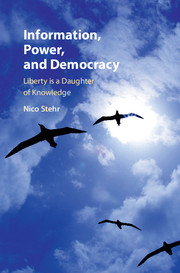Book contents
Excursus: An inconvenient democracy: knowledge and climate change
Published online by Cambridge University Press: 05 December 2015
Summary
[M]y own experience and everyday knowledge illustrate that comfort and ignorance are the biggest flaws of human character. This is a potentially deadly mix.
Hans Joachim Schellnhuber (2010)The martial celebration of a decisionism that bursts the limits of the boredom of deliberation came to be seen … as the royal road to the will's restoration.
Pierre Rosanvallon (2006:191–192)In an article published in the summer 2012, in the face of a robust set of extreme weather events (e.g., droughts, floods, and heat) on different continents of the world and the latest findings in climate science, though not shared in detail by all scientists that deal with the questions of the causes and consequences of climate change, the economist Jeffrey D. Sachs (2012) calls for much-needed political consequences:
The evidence is solid and accumulating rapidly. Humanity is putting itself at increasing peril through human-induced climate change. As a global community, we will need to move rapidly and resolutely in the coming quarter-century from an economy based on fossil fuels to one based on new, cutting-edge, low-carbon energy technologies. The global public is ready to hear that message and to act upon it. Yet politicians everywhere are timid, especially because oil and coal companies are so politically powerful. Human well-being, even survival, will depend on scientific evidence and technological know-how triumphing over shortsighted greed, political timidity, and the continuing stream of anti-scientific corporate propaganda (my emphasis).
The dispute about climate change, its repercussions for the world, alternative conceptions of (historical and moral) responsibility and effective ways of responding is of course a profound and at times controversial sociopolitical issue. The political controversies linked to the nature of and the responses to climate change are deeply embedded in contradictory political world views; for example, the clash between conservative and liberal positions that advocate the withdrawal of the state from many of the affairs of society and those who see the solution to the thorny issues of climate change in a response in terms of more and deeper interventions of the state into the market and social behavior generally.
- Type
- Chapter
- Information
- Information, Power, and DemocracyLiberty is a Daughter of Knowledge, pp. 192 - 203Publisher: Cambridge University PressPrint publication year: 2015



